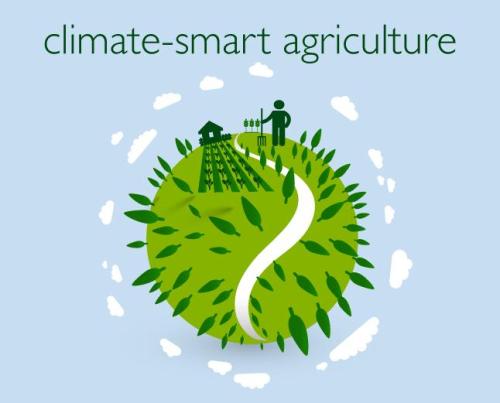INTRODUCTION
Climate-Smart Agriculture is agriculture that sustainably increases productivity, resilience, reduces or removes Green House Gases (GHGs) and enhances achievement of national food security and development goals. Following the unpredictable recurring climate change in Sub Saharan Africa leading to negative effects on crop and livestock production, climate smart agriculture can be a solution in ensuring that smallholder farmers who are the most affected by impact of climate change are food secure. Furthermore, climate smart agriculture practices sustainably increase agricultural productivity, support equitable increases in farm incomes, food security and development.
DURATION
5 days
WHO SHOULD ATTEND?
• Policy makers
• Development practitioners and programme managers
• Sectoral specialists and academics
• Trainers and extension agents
• Anyone who wants to learn more about modern food production, farming and environmental challenges.
LEARNING OBJECTIVES
By the end of the training, participants will:
• Have an understanding of effects of climate change on agriculture productivity.
• Have enhanced their knowledge and understanding of the concepts and principles of climate smart agriculture.
• Be knowledgeable on climate smart agriculture practices in crop and livestock production
• Have an understanding of improved sustainability approaches in agriculture production,
• Understand that climate smart agriculture practices make agricultural and food security systems adapt and become resilient to climate change and remove greenhouse gases.
• Identify climate smart agriculture Strategies on Climate Change adaptation.
• Learn on ways of increasing the current production levels to meet the consumption demands without having a negative impact on the environment.
• Have an understanding of the climate finance
• Gain knowledge on crop and livestock insurance.
• Identify the needed collaboration efforts among stakeholders on climate smart agriculture and Climate Change Adaptation and devise on how the collaboration can be strengthened
TOPICS TO BE COVERED
Module 1: Impacts of climate change on agriculture and food security
• Climate Change
• Agriculture, Climate Change and Food Security
• Climate-Smart Agriculture Concept
• Farmers becoming resilient to climate change shocks and stresses when they adapt climate smart agriculture practices
Module 2: Basics of adaption and mitigation in the agricultural sector
• Climate-Smart Agriculture Solutions
• Removing Barriers and Enabling the Environment for Adoption of Climate-Smart Agriculture
• Crop and livestock insurance
• Climate financing
• Gender in climate smart agriculture
• The Lead Farmer Concept in climate smart agriculture
Module 3: Incorporating climate change considerations into agricultural investment programmes
• Gender in climate-smart agriculture
• Gender and Climate Change Research in Agriculture and Food Security for Rural Development
• Climate Change and Food Security
• Barriers to adopting CSA
• Interactions between climate change and agriculture, including basic facts about the effects of climate change and the most important greenhouse gases.
Module 4: Describe the principles of climate smart agriculture, in particular the three pillars of mitigation, adaptation and productivity.
• Discuss the complexity of food production systems, why it can be difficult to implement climate smart agriculture and other forms of sustainable farming, and how the effects can be measured.
• Reflect on how consumer behaviour, policies and regulations, and financial aspects influence the adoption of climate smart and other sustainable practices.

